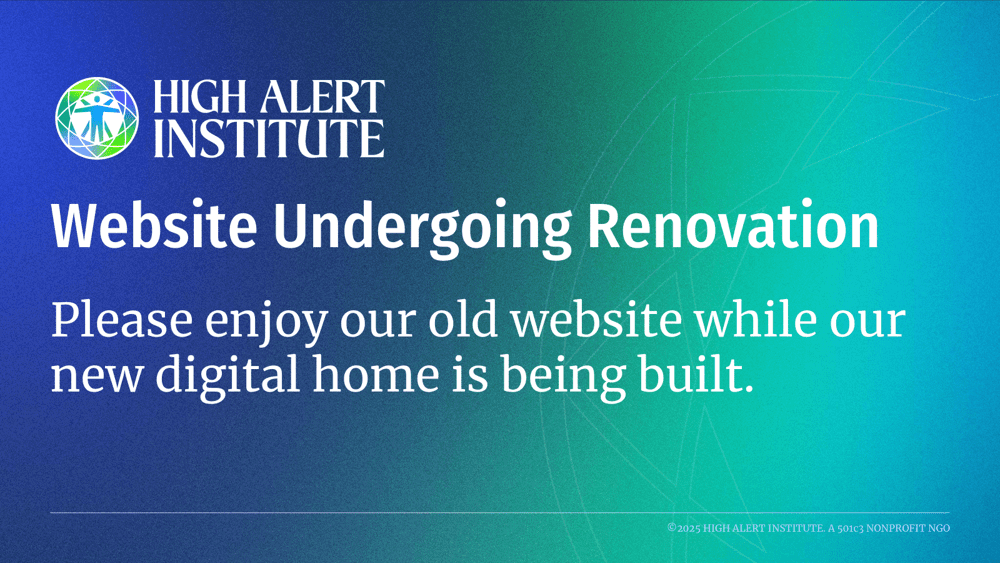High Alert Institute
Getting Voted Back onto the Island; Part 4 – Gathering: Tactical, Intellectual and Societal Needs

Getting Voted Back onto the Island
Part 4 – Gathering: Tactical, Intellectual, and Societal Needs
By: Dr. Maurice A. Ramirez
Updated: 04Oct2022
An increasing number of business continuity professionals and disaster recovery experts are discovering that the most vulnerable links in the continuity of operations chain are the people a business serves and those who serve them. While this seems intuitively obvious now, for decades, resolving the fragility of technology has been the exclusive focus of the industry.
This series has explored why employees and customers are prone to staying away from business sites, gathering their “tribe” close, and effectively voting businesses off the island. Last month, this series explored Gratifying: Emotional, Interpersonal and Spiritual Needs, discovering that in this technology-centric society, it is not the employer with the best information infrastructure but the employer with the best employee relationships that comes out on top.
Beyond Heart and Soul to Head and Home
Employers that provide for and support their employees’ emotional, interpersonal, and even spiritual needs garner their employees’ loyalty and membership in each employee’s tribe. However, like any member of the tribe, it is not enough to support the tribe’s intangible needs; there must be a contribution to the tribe’s ability to regain self-sufficiency. This requires the employee and the tribe to gain skills and knowledge to assist them in preparing for and responding to a disaster. Additionally, everyone’s connection to the community as it recovers must be promoted and maintained.
Building for Tactical and Intellectual Success
The “bread and butter” of business continuity planning is the development of skills and knowledge to ensure the uninterrupted operation of the business. Many employers and even business continuity professionals are only coming to realize that an employee can succeed with these skills at work. The employee must be able to adapt and adopt these skills at home to ensure the uninterrupted operations of the tribe. Employers can best contribute to the employee’s tribe in a meaningful way by ensuring that the business continuity and disaster preparedness skills learned in the workplace are also applied at home.
Fortunately, most business continuity skills and preparedness lessons learned in the workplace apply to the employee’s home, family, and tribe.
- Secure critical data and original legal documents in an offsite location, such as a safe deposit box.
- Backup computer records and family photos onto DVD-ROM / CD-ROM, cloud storage, USB drives, or another digital backup.
- Performing yearly reviews of insurance coverage and physical home security.
- Review and drill the family disaster plan at least twice a year.
These are a few examples of business continuity skills and knowledge that can quickly become “family continuity” skills. Furthermore, “making it personal” in this fashion increases the likelihood that an employee will recall the skills and information correctly.
Supporting Societal Bonds
As communities and local social life reconstitute themselves in the aftermath of a disaster, the instinct and desire of individuals, families, and “tribes” are to participate in the societal recovery. The bonds built during this period are often stronger than those formed before the disaster. The intensity of bonds formed in the face of adversity offers a significant opportunity for the business that has positioned itself to benefit from this bonding period through planning and disaster preparedness.
Employers who develop relationships with employees and their tribes will become a part of every societal bond that an employee or the tribal member makes during the recovery. Promoting such relationships imbue the employer with the reputation of being generous and service-oriented. Both are invaluable marketing attributes anytime, but especially following a disaster.
In addition to this indirect benefit, businesses that promote the recovery of the local community and society never go unnoticed. In over a quarter century of disaster response and recovery work, I have never encountered a business that went out of its way to support the community recovery that did not benefit directly through new customers, returning customers, and long-lasting customer loyalty.
The Hierarchy Complete
Viewing the needs of employees, family members, customers, or ourselves on Maslow’s Hierarchy, it is clear that surviving the physical needs while gratifying the emotional, interpersonal, and spiritual needs is the key to remaining part of the tribe. Further, a business can transcend disaster survival by applying basic business continuity planning skills to the family.
The next segment of this series will examine,
Part 5 – Thriving Through the Disaster.
High Alert Institute
4800 Ben Hill Trail
Lake Wales, FL 33898
Office: 863.696.8090
FAX: 407.434.0804
EIN: 27-5078437
Info@HighAlertInstitute.org
Privacy Policy
Cookie Policy
Terms of Use
Disclaimers
Get Your Data
Shipping Policy
Message Us
Transparency
Registrations
Do Not Sell Info
Return Policy
A COPY OF THE OFFICIAL REGISTRATION AND FINANCIAL INFORMATION MAY BE OBTAINED FROM THE DIVISION OF CONSUMER SERVICES BY CALLING TOLL-FREE, WITHIN THE STATE, 1-800-435-7352 (800-HELP-FLA), OR VISITING www.FloridaConsumerHelp.com. REGISTRATION DOES NOT IMPLY ENDORSEMENT, APPROVAL, OR RECOMMENDATION BY THE STATE. Florida Registration #CH68959
REGISTRATION WITH A STATE AGENCY DOES NOT CONSTITUTE OR IMPLY ENDORSEMENT, APPROVAL OR RECOMMENDATION BY THAT STATE.










